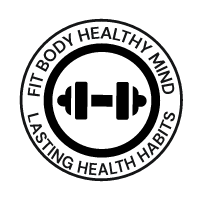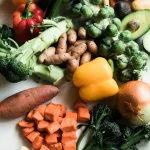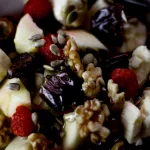Mastering Meal Planning for Weight Loss
In the pursuit of achieving weight loss goals, mastering meal planning is a fundamental aspect not to be overlooked. A thoughtful approach is needed when starting a fitness routine combined with meal planning, especially when choosing food.
The impact on your overall health and wellness depends on the nutritional value a meal plan provides. In this article, we share practical strategies on how to achieve effective weight loss and a healthier lifestyle through meal planning.
The significance of weight loss meal prep
Building an effective weight loss program starts in the kitchen, and meal prep plays a vital role in ensuring success. Set time aside to plan and prepare your meals in advance. Diet choices for promoting weight loss are based on healthy options and sound calorie counts.
Two crucial things to consider when losing weight are to keep track of your progress and resist the temptation of eating unhealthy food. An appropriate meal prep for weight loss is made up of nutritious ingredients, and suitable portions. These should be readily available for consumption at specific times during your workout routines.
Weight loss meal prep
When putting together a menu that supports your weight loss goals, diet planning strategies are crucial for optimal results. Densely nutritious food such as vegetables, lean proteins, fruits, and whole grains make a sufficient balanced meal option that promote healthy weight loss.
Meal prepping tips
An easy approach is to understand your dietary needs and amount of body weight you expect to shed. Important factors such as calorie requirements, how you wish macronutrients distribution.
5 ways to conquer macronutrients in your meal prep plan for weight loss success
Meal prepping isn’t just about convenience; it’s about taking control of your nutrition, especially when aiming for weight loss. But navigating the world of macronutrients (macros) can feel overwhelming. Here’s a breakdown of the ultimate macro distribution process to fuel your effective meal prep plan for weight loss.
- Weight loss aids
- Gym and nutrition
- Workout routines
- Coffee beans
- Meal prep
- Healthy eating
1. Know your baseline
Total Daily Energy Expenditure (TDEE) is the number of calories your body burns daily to maintain its current weight. There are many online calculators to estimate your TDEE.
2. Set your calorie deficit
Aim for a 500-calorie deficit from your TDEE for a healthy and sustainable weight loss of 1-2 pounds per week.
3. Macronutrient breakdown
There’s no one-size-fits-all approach, but here’s a general guideline for weight loss:
For proteins consume 30-40% of daily calories. Protein keeps you feeling fuller for longer and helps preserve muscle mass during weight loss.
Meal prep plan to include carbs 40-50% of daily calories. Choose complex carbs like whole grains, vegetables, and fruits for sustained energy.
Monitor your fat intake to 20-30% of daily calories. Healthy fats like avocados, nuts, and olive oil provide a feeling of fullness and support hormone function.
4. Tailor your macros
Your activity level may determine consumption of food. If you’re very active, you might need slightly more carbs for energy. If you’re less active, a slightly higher protein intake can be beneficial.
On your diet consider vegetarian, pescatarian, or other dietary styles. There are macro-friendly options for everyone.
5. Putting it into practice:
Meal planning apps: Many apps can help you calculate macros and build meal plans based on your preferences.
Simple sample meals:
Breakfast should be a Greek yogurt with berries and nuts (protein + carbs + healthy fats)
For Lunch have grilled chicken with brown rice and roasted vegetables (protein + carbs + healthy fats)A dinner of Salmon with quinoa and steamed broccoli (protein + carbs + healthy fats)
Remember:
This is a general guide. Consult a registered dietitian for personalised macro recommendations.
Focus on whole, unprocessed foods for optimal nutrition.
Track your progress and adjust your macros as needed.
By understanding and applying this macronutrient approach, you can change your meal prep into a powerful tool for achieving your weight loss goals.
Effective weight loss
In conclusion mastering meal planning is a fundamental component of achieving weight loss. By adopting diet planning strategies, implementing weight loss meal prep techniques, and incorporating meal prepping tips into your routine, you can take control of your health and wellness goals.






